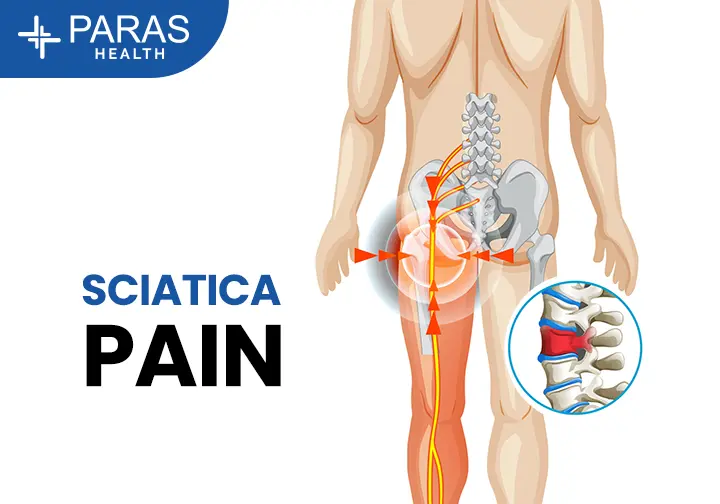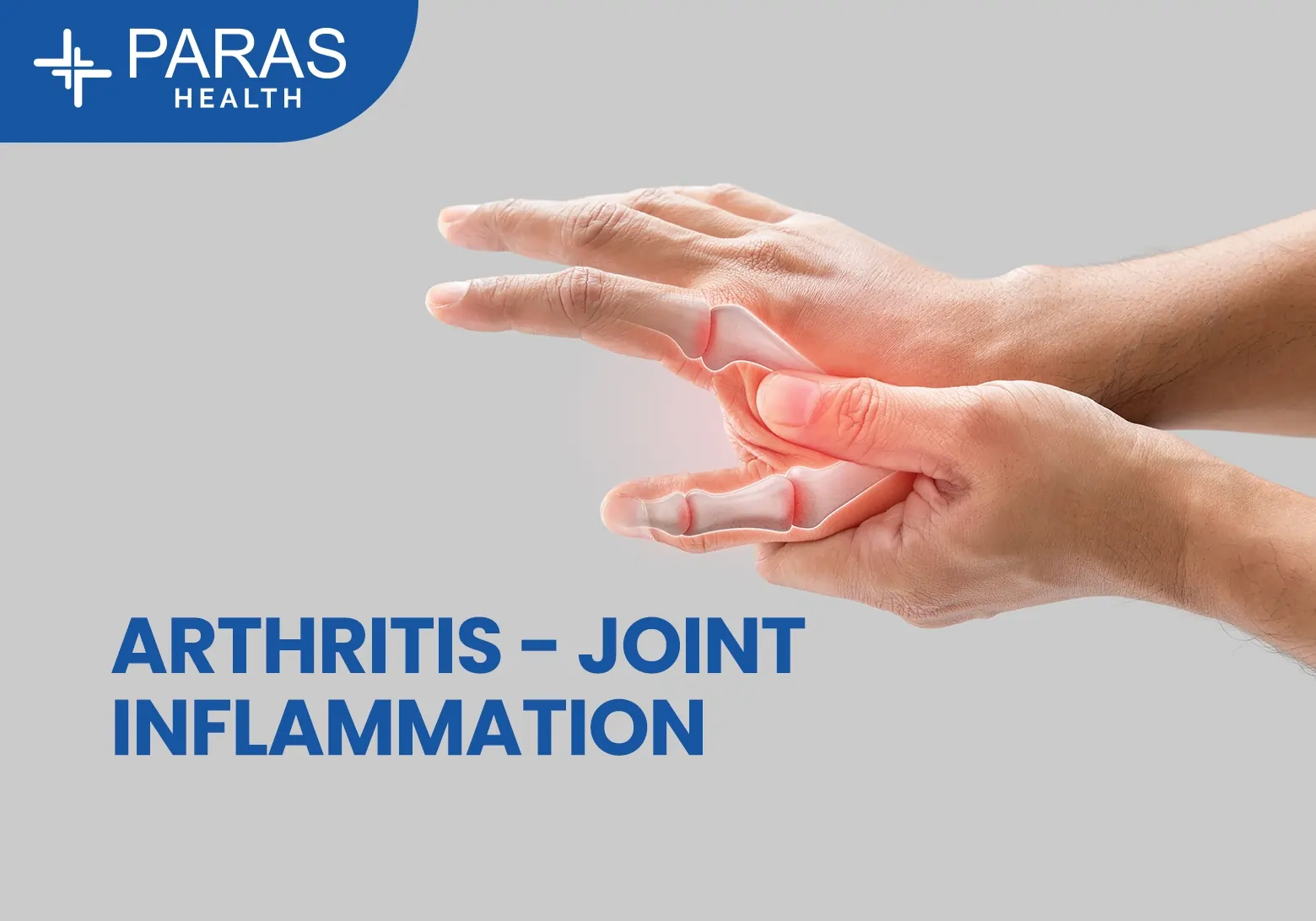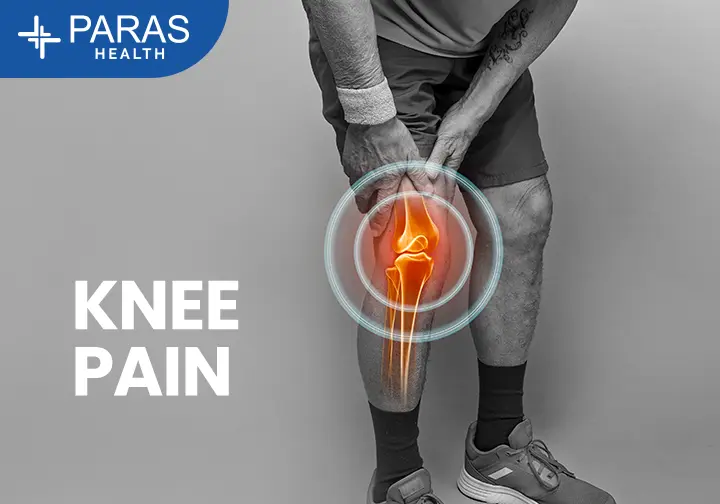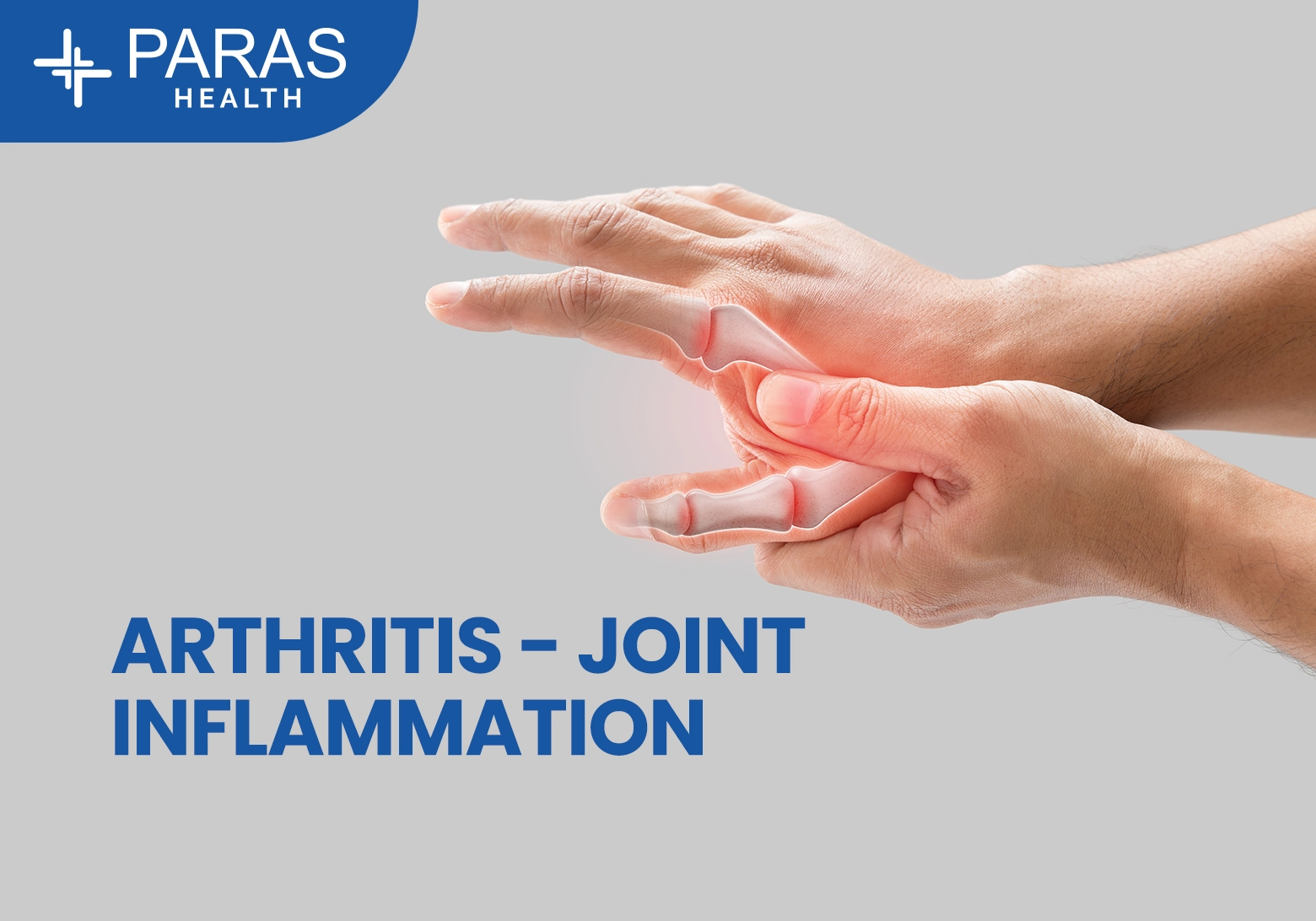Fractures: Healing Process and Recovery Tips – Your Complete Guide
Mar 07, 2025
Imagine this: You’re enjoying a peaceful afternoon walk, when suddenly, your foot slips on a patch of ice, and you hear a loud crack. You look down in shock, realizing something is wrong—your bone might be broken. Fractures can happen when you least expect them, but don’t worry—your body has an incredible ability to heal, and with the right knowledge and care, you’ll be back on your feet in no time.
In this article, we’ll break down the healing process for fractures, the stages of recovery, and some lesser-known tips to speed up your healing. Whether you’ve just fractured a bone or are simply curious, we’ve got you covered. We’ll also show you how Paras Hospital’s expert care can make your recovery smoother and faster.
What Happens When You Break a Bone?
A fracture is simply when a bone breaks, cracks, or shatters. While most fractures happen from an accident, falls, or trauma, certain conditions like osteoporosis can also make bones more fragile and prone to breaking.
Did you know? Fractures affect millions of people every year. According to the National Institutes of Health (NIH), the most common areas for fractures are the wrist, ankle, and hip. So, if you’ve ever found yourself injured, you're definitely not alone.
The Healing Process: 4 Stages of Bone Recovery
Understanding how your body heals after a fracture is key to a smooth recovery. Bone healing typically happens in four stages. Let’s take a closer look at each one!
- Inflammatory Phase (0–5 Days)
- The moment you break a bone, your body kicks into high gear to protect and heal the injury. During this phase, blood vessels around the fracture site constrict to limit bleeding. A blood clot forms around the break, creating a temporary "splint" to stabilize the bone. Swelling, redness, and pain are common during this stage.
- Fun Fact: While the inflammation phase may be uncomfortable, it’s crucial for healing. That swelling? It’s your body’s way of getting the healing process started!
- Repair Phase (1 Week – 6 Weeks)
- Once the blood clot forms, your body starts building soft callus tissue around the fracture site. Over time, this tissue hardens and becomes bone. This phase typically lasts from a week to a month, depending on the fracture. A cast, splint, or other immobilization device might be used to keep your bone in place and promote healing.
- Stat Alert: The American Academy of Orthopaedic Surgeons (AAOS) reports that most fractures heal within 6–8 weeks. However, the exact time can vary depending on the bone involved and other factors like age and overall health.
- Remodeling Phase (6 Weeks – 1 Year)
- Once the bone is strong enough to bear weight, the remodeling phase begins. Here, the bone begins to reshape itself into its original form, and any extra bone tissue is absorbed. It’s like your body’s personal construction team, smoothing out rough edges. This phase can last months, even up to a year.
- Maturation Phase (Up to 2 Years)
- During this final phase, your bone continues to get stronger and more resilient. While you may feel better in a few months, it takes up to two years for the bone to fully "mature" and regain its original strength.
Key Fracture Statistics You Should Know
Fractures are extremely common, and some startling statistics show just how widespread they are. According to the World Health Organization (WHO):
- Over 10 million fractures occur globally every year.
- About 30-50% of people over 50 will experience an osteoporotic fracture in their lifetime.
- Long bone fractures (like femur or tibia) are more likely to have complications, such as delayed healing or non-union.
These stats remind us that fractures are a serious health issue, but with the right care, recovery is very possible.
What Affects Bone Healing Time?
The recovery time for a fracture can vary greatly. Here are a few factors that influence how quickly your bone will heal:
- Age: Younger people typically heal faster than older adults because their bones are more resilient and have a better blood supply.
- Nutrition: A diet rich in calcium, vitamin D, and protein can speed up the healing process. These nutrients are essential for building strong bones.
- Smoking: Smoking impairs blood flow, which slows down healing. If you're a smoker, quitting can make a big difference in recovery time.
- Bone Health: If you have conditions like osteoporosis, healing can be slower since your bones are more fragile.
Tips to Speed Up Your Fracture Recovery
You’ve got the basics of healing down—now let’s talk about ways you can actively help your body heal faster. Here are some actionable tips:
- Stick to Your Doctor’s Plan
This may seem like a no-brainer, but it’s easy to get frustrated and want to rush your recovery. Make sure to follow your doctor’s advice, attend all follow-up appointments, and don’t skip physical therapy (if prescribed). Doing so ensures that the bone heals properly and that you avoid complications down the road. - Eat for Healing
You’ve probably heard it a thousand times: "You are what you eat." When it comes to bone recovery, this couldn’t be truer. Make sure you’re eating enough calcium and vitamin D to help build and strengthen your bones. Some foods to include in your diet:- Dairy products like milk and yogurt (for calcium)
- Fatty fish (like salmon) for vitamin D
- Leafy greens (like kale and spinach) for both calcium and magnesium
- Protein-rich foods (like chicken, tofu, and beans) to help with tissue repair
- Don’t Overdo It—But Don’t Be Sedentary Either
It’s tempting to rest completely while you heal, but staying completely still for too long can lead to stiffness and muscle atrophy. Once your doctor gives you the go-ahead, gentle exercises and physical therapy can help prevent these issues and get your muscles and joints back in shape. - Manage Pain and Swelling
In the first few days after your fracture, pain and swelling are common. Applying ice to the area and keeping the injured part elevated can help minimize swelling. Over-the-counter medications like ibuprofen can help reduce inflammation and manage pain, but always check with your doctor before taking anything. - Be Patient
Healing takes time—there’s no way around it. While it’s frustrating to be sidelined, rest is just as important as rehabilitation. Trust your body to heal at its own pace and avoid rushing back into high-impact activities before you’re fully ready. Pushing too hard, too fast, could lead to reinjury.
Paras Hospital: Your Partner in Fracture Recovery
At Paras Hospital, we believe in providing personalized care to help you recover from fractures quickly and safely. Whether you’ve experienced a simple fracture or a complex break, our team of orthopedic specialists is here to guide you through every stage of recovery. With advanced medical technology, expert surgeons, and tailored rehabilitation programs, you’re in great hands.
If you’ve recently had a fracture and want the best care available, reach out to Paras Hospital. Our team will help you understand your healing process, create a customized treatment plan, and support you every step of the way.
Conclusion – Heal Faster with Expert Care at Paras Hospital
Fractures can be challenging, but with the right approach, you can recover smoothly and regain your strength. By following your doctor’s advice, eating bone-nourishing foods, staying active (when permitted), and managing pain effectively, you can speed up your healing process. Remember, recovery takes time, and patience is key!
For personalized fracture treatment and expert orthopedic care, trust Paras Hospital. Our experienced specialists, advanced treatments, and dedicated rehabilitation programs ensure the best recovery outcomes. Call us now at 8080808069 to book a consultation and take the first step toward healing. Your recovery starts here!
Frequently Ask Questions(FAQs)
How long does it take for a bone to heal?
Most fractures take about 6-8 weeks to heal, but recovery time can vary based on the bone and severity. Larger bones or complex fractures may take longer, while children tend to heal faster than older adults.
What are the signs of improper healing?
Signs of improper healing include persistent pain, swelling that doesn't go down, difficulty moving the area, or visible deformity. If you notice these, consult your doctor for further evaluation.
How can I speed up recovery?
Follow your doctor’s advice, eat a bone-healthy diet rich in calcium and vitamin D, avoid overexerting yourself, and engage in gentle exercises to improve flexibility once approved by your healthcare provider.
Can I walk on a fractured bone?
Whether you can walk depends on the type and location of the fracture. Minor fractures may allow walking with support, but more serious fractures generally require immobilization and crutches or a wheelchair.
What foods help with bone healing?
Foods rich in calcium, vitamin D, and protein are essential for bone healing. Include dairy, leafy greens, fatty fish, and lean meats in your diet to promote faster recovery.
Is it safe to exercise with a fracture?
During the initial phase, rest is essential. However, light exercises can be beneficial once your doctor approves it, but avoid strenuous activities that could impede healing.
Can I smoke during recovery?
Smoking slows down the healing process by reducing blood flow, which is crucial for bone repair. Quitting smoking during recovery is highly recommended for faster healing.
What’s the difference between a fracture and a break?
A fracture and a break are the same; both refer to a bone that has been cracked or broken. "Fracture" is the medical term for a bone that is damaged in any way.
Can a fracture heal without a cast?
Some fractures, like hairline fractures or small bone fractures, may heal without a cast. However, more serious fractures typically require a cast or surgery to ensure proper alignment and healing.
When can I return to normal activities?
Return to normal activities generally happens after 6-8 weeks, depending on the fracture's severity. Always consult your doctor before resuming high-impact activities to avoid re-injury.
How can Paras Hospital help with recovery?
Paras Hospital offers expert care for fracture recovery, from accurate diagnosis to tailored treatment plans. Our specialists provide surgery, rehabilitation, and personalized care to ensure optimal healing and recovery.










